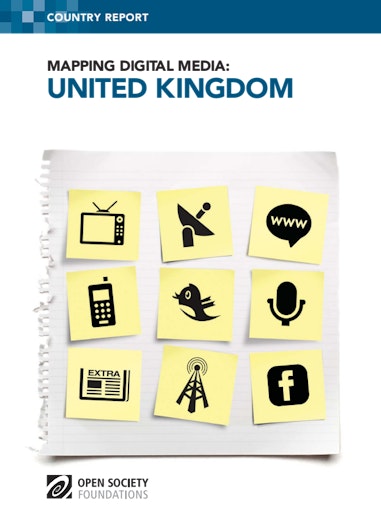The Mapping Digital Media project examines the global opportunities and risks created by the transition from traditional to digital media. Covering 60 countries, the project examines how these changes affect the core democratic service that any media system should provide: news about political, economic, and social affairs.
Research shows that near-universal digital media access in the United Kingdom has yielded broad benefits for citizenship and democracy. But key areas of concern have emerged that continue to pose threats to independence and diversity. These include sustained financial crises within regional and local media, public service broadcasting, and the press sector at large; acute sites of cross-media concentration; and persistent digital divides in terms of access to “quality” output.
This report calls on policymakers to consider new funding options and structures to safeguard the future of public-interest oriented news. It also argues for establishing a Media Commission to research and make recommendations on the future of the news media in the UK.
Download
-
Mapping Digital Media: United Kingdom (Revised Dec 2011) (471.66 Kb pdf file)
Download the complete 95-page report.
Read more
Voices
What Does Independent Journalism Look Like in the Digital Age?

Journalists and media organizations can find themselves repressed because of inadequate or deliberately repressive policy. Mapping Digital Media examines the situation in 56 countries.
Voices
Does Digital Media Mean Better Media?
From Montenegro to Nicaragua to China to Egypt, has digital media improved access to good-quality journalism?
Voices
The Impact of Digital Media on Sweden
Sweden offers an intriguing test case for studying the impact of media digitization on journalism and democracy.
